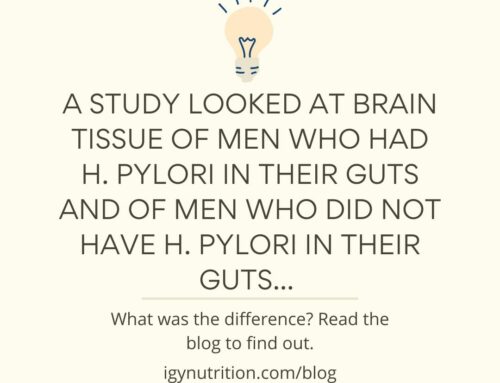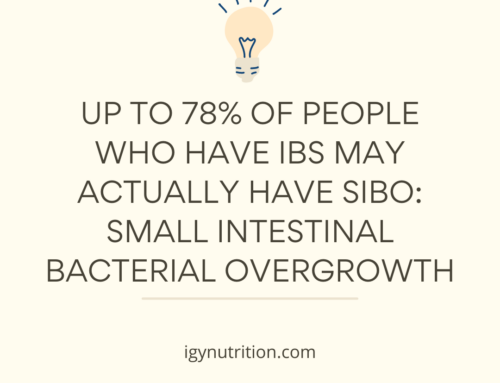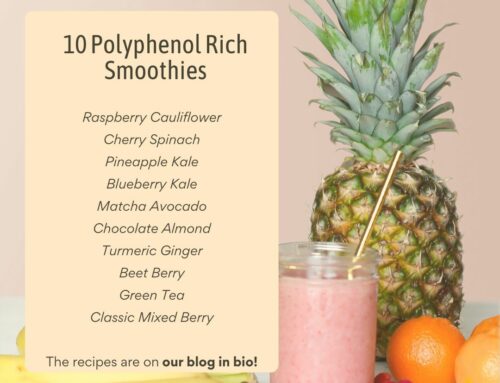Are you dealing with leaky gut syndrome? No fear – vitamins are here!
Did you know specific vitamins and amino acids have been demonstrated in scientific studies to strengthen your gut barrier?
Let’s jump in.
Recap: What is the Gut Barrier?
The gut barrier is a lot like how it sounds. It’s a wall between your body and your intestines. In simple terms, it keeps what is meant to stay inside the gut inside it (1).
However, the gut barrier has to let some things from inside the gut into the rest of the body. Nutrients like vitamins, proteins, electrolytes, and water are great examples.
It must keep some things out of the body too. Ideally, the barrier does not let pathogens and undigested food particles into the body – it should keep them in the gut so the body can get rid of them through stool.
The gut barrier lets only certain things through it. It’s like a bouncer – only those on the list can get in. This characteristic of the gut barrier is called selective permeability (2).
In cases of dysbiosis, excessive NSAID use, and inflammatory food and drink consumption, the gut barrier begins to weaken (3, 4, 5). The weaker it gets, the more porous it gets.
Increased permeability means that random things from inside the gut – those who aren’t on the list – may get by our bouncer, the gut barrier, and enter our bodies (1).
Overly-permeable gut barriers may permit food particles and pathogens to enter our bloodstream and cause damage throughout the body. This condition is called leaky gut syndrome (1).
Some people with leaky gut syndrome experience intense fatigue, digestive symptoms, autoimmune diseases, and other conditions. Others are asymptomatic (1).
Whether you’re experiencing leaky gut syndrome or not, strengthening your gut barrier is a great way to generally improve gut and immune health (1). Plus, preventing leaky gut down the line is an excellent investment.
So how do we strengthen our gut barriers? Let’s take a look.
Glutamine and the Gut Barrier
If there is one piece of information you should take away from this blog, it’s that glutamine is your friend!
Glutamine is an amino acid that is shown to:
- Significantly strengthen gut barrier integrity (6)
- Diminish sugar cravings (7)
- Support healthy metabolisms (7)
Scientific evidence suggests that consuming over 5g of glutamine per day helps repair the gut lining (6).
Glutamine is found naturally in food. Meat like chicken and fish, vegetables like cabbage and spinach, and legumes like tofu, beans, and lentils are high in glutamine.
If you struggle with leaky gut syndrome, scientific evidence suggests that consuming over 5g of glutamine per day would help to repair your gut lining (6). If you simply want to prevent leaky gut syndrome, 2-5g is a reasonable dose.
If you’re looking to pack an extra punch, many BCAA drinks contain high glutamine levels. Glutamine can also be added to drinks and smoothies, and it typically comes in powder form. Glutamine tastes pretty neutral, so there isn’t much to worry about when mixing it in beverages.
Vitamins and the Gut Barrier
Three vitamins are essential for gut barrier integrity: omega 3, zinc, and vitamin D.
Omega 3 vitamins are valuable for decreasing inflammation in the gut and improving microbiome composition, which are potential root causes of leaky gut syndrome (8, 9).
Omega 3 vitamins are found naturally in foods. Fish are the best source of omega 3 vitamins – they contain much higher amounts than vegetarian sources. Vegetarian sources include eggs, chia seeds, algae, walnuts, and flax seeds.
Most people are deficient in omega 3 vitamins. 1000 mg of omega 3 vitamins is the daily recommended dose. If you struggle to include enough omega 3 vitamins in your diet, supplementing with high-quality fish oil would greatly benefit your gut health.
Zinc is also incredibly valuable for immune and gut health. It is often recommended to those with colitis, Crohn’s disease, dysbiosis, SIBO, parasitic infections, or other gut issues because of its contribution to repairing the gut lining (10).
Zinc is found in beans, nuts, red meat, poultry, and certain dark leafy greens. Oysters are also incredibly high in zinc.
If you struggle to consume enough zinc in your diet, consider supplementing it. However, don’t go overboard – too much zinc can damage your gut lining. Aim for 8-11 mg per day.
Lastly, vitamin D is a crucial player. Some scientists believe a deficiency in vitamin D may even cause leaky gut syndrome – so making sure you’ve got enough vitamin D is key to overcoming the syndrome (11, 12).
Vitamin D gets a 5-star rating with gut health. Evidence asserts that it decreases inflammation, upregulates beneficial bacteria, improves food breakdown and absorption, and repairs gut lining.
Vitamin D can be found in fish, dairy, certain mushrooms, eggs, and fortified foods. If you’re vegetarian or vegan, consider supplementing with vitamin D since it’s hard to attain from plant sources.
The Takeaway
Whether you’re looking to mend or prevent leaky gut syndrome, ensuring that you consume adequate glutamine, omega 3, zinc, and vitamin D will benefit your gut health.
We recommend consulting a registered dietitian, testing your blood for micronutrient levels, and purchasing high-quality supplements to deal with leaky gut syndrome.
Thanks for joining us today, and tag us in photos of your digestive wellness journey on Instagram @igynutrition. Thanks and good luck!
References
- https://www.sciencedirect.com/topics/medicine-and-dentistry/intestinal-permeability
- Krug SM, Schulzke JD, Fromm M. Tight junction, selective permeability, and related diseases. Semin Cell Dev Biol. 2014 Dec;36:166-76. doi: 10.1016/j.semcdb.2014.09.002. Epub 2014 Sep 16. PMID: 25220018. https://pubmed.ncbi.nlm.nih.gov/25220018/
- Morris G, Berk M, Carvalho AF, Caso JR, Sanz Y, Maes M. The Role of Microbiota and Intestinal Permeability in the Pathophysiology of Autoimmune and Neuroimmune Processes with an Emphasis on Inflammatory Bowel Disease Type 1 Diabetes and Chronic Fatigue Syndrome. Curr Pharm Des. 2016;22(40):6058-6075. doi: 10.2174/1381612822666160914182822. PMID: 27634186. https://pubmed.ncbi.nlm.nih.gov/27634186/
- Bjarnason I, Takeuchi K. Intestinal permeability in the pathogenesis of NSAID-induced enteropathy. J Gastroenterol. 2009;44 Suppl 19:23-9. doi: 10.1007/s00535-008-2266-6. Epub 2009 Jan 16. PMID: 19148789. https://pubmed.ncbi.nlm.nih.gov/19148789/#:~:text=Results%3A%20Virtually%20all%20studies%20agree,tried%20to%20limit%20the%20damage.
- Khoshbin K, Camilleri M. Effects of dietary components on intestinal permeability in health and disease. Am J Physiol Gastrointest Liver Physiol. 2020 Nov 1;319(5):G589-G608. doi: 10.1152/ajpgi.00245.2020. Epub 2020 Sep 9. PMID: 32902315; PMCID: PMC8087346. https://pubmed.ncbi.nlm.nih.gov/32902315/
- Wang B, Wu G, Zhou Z, Dai Z, Sun Y, Ji Y, Li W, Wang W, Liu C, Han F, Wu Z. Glutamine and intestinal barrier function. Amino Acids. 2015 Oct;47(10):2143-54. doi: 10.1007/s00726-014-1773-4. Epub 2014 Jun 26. PMID: 24965526. https://pubmed.ncbi.nlm.nih.gov/24965526/#:~:text=Furthermore%2C%20glutamine%20stimulates%20growth%20of,essential%20amino%20acid%20for%20adults.
- Jafari-Vayghan, H., Varshosaz, P., Hajizadeh-Sharafabad, F., Razmi, H. R., Amirpour, M., Tavakoli-Rouzbehani, O. M., Alizadeh, M., & Maleki, V. (2020). A comprehensive insight into the effect of glutamine supplementation on metabolic variables in diabetes mellitus: a systematic review. Nutrition & metabolism, 17, 80. https://doi.org/10.1186/s12986-020-00503-6 https://www.ncbi.nlm.nih.gov/pmc/articles/PMC7517657/
- Costantini L, Molinari R, Farinon B, Merendino N. Impact of Omega-3 Fatty Acids on the Gut Microbiota. Int J Mol Sci. 2017 Dec 7;18(12):2645. doi: 10.3390/ijms18122645. PMID: 29215589; PMCID: PMC5751248. https://pubmed.ncbi.nlm.nih.gov/29215589/#:~:text=Finally%2C%20human%20and%20animal%20studies,microbiota%20emerges%2C%20encouraging%20further%20studies.
- Marton LT, Goulart RA, Carvalho ACA, Barbalho SM. Omega Fatty Acids and Inflammatory Bowel Diseases: An Overview. Int J Mol Sci. 2019 Sep 30;20(19):4851. doi: 10.3390/ijms20194851. PMID: 31574900; PMCID: PMC6801729. https://pubmed.ncbi.nlm.nih.gov/31574900/#:~:text=The%20results%20showed%20that%20%CF%893,of%20life%20of%20CD%20patients.
- Sturniolo GC, Fries W, Mazzon E, Di Leo V, Barollo M, D’inca R. Effect of zinc supplementation on intestinal permeability in experimental colitis. J Lab Clin Med. 2002 May;139(5):311-5. doi: 10.1067/mlc.2002.123624. PMID: 12032492. https://pubmed.ncbi.nlm.nih.gov/12032492/
- Singh P, Rawat A, Alwakeel M, Sharif E, Al Khodor S. The potential role of vitamin D supplementation as a gut microbiota modifier in healthy individuals. Sci Rep. 2020 Dec 10;10(1):21641. doi: 10.1038/s41598-020-77806-4. PMID: 33303854; PMCID: PMC7729960. https://pubmed.ncbi.nlm.nih.gov/33303854/
- Fakhoury HMA, Kvietys PR, AlKattan W, Anouti FA, Elahi MA, Karras SN, Grant WB. Vitamin D and intestinal homeostasis: Barrier, microbiota, and immune modulation. J Steroid Biochem Mol Biol. 2020 Jun;200:105663. doi: 10.1016/j.jsbmb.2020.105663. Epub 2020 Mar 16. PMID: 32194242. https://pubmed.ncbi.nlm.nih.gov/32194242/




